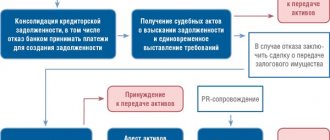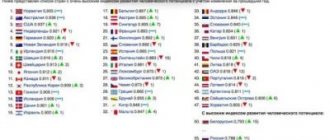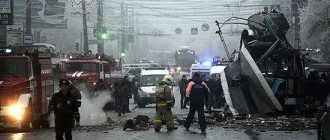It is human nature to love easy money. Who among us would refuse the opportunity to get rich overnight? Admit it: at least once in your life you bought a lottery ticket in the hope of turning into Scrooge McDuck. Scammers of all stripes profit from these dark passions: networkers, pseudoscientists who promise to turn a plastic fork into pure gold. And, of course, the brightest representatives of the cheating industry are the owners of gambling establishments. Since 2009, gambling has been officially prohibited in Russia. However, although it is short, it has a very rich history.
General information
The gambling business is defined as the field of activity associated with the organization and maintenance of companies specializing in gambling.
Until 2009, this area was developing rapidly, but later a ban on this business was approved at the legislative level, which is why many gaming halls, casinos and similar enterprises were closed.
At the moment, this line of business exists in Russia only in the form of a few gambling zones. Any establishments specializing in gambling located outside the zones are considered illegal.
“In the 90s people were killed, and everyone was running around completely naked...”
It’s not hard to guess when our country was besieged by one-armed bandits.
The first slot machines appeared in the USSR, however, as a tribute to Western fashion - exclusively in hotels where foreign guests stayed. The machines were supplied to Intourists in Moscow, Leningrad, Sochi, Yalta, Minsk, Tallinn, Vyborg and Pyatigorsk - a total of 226 of them were purchased. It was 1988. Then they began to undress those thirsty for profit in a big way, and in 1989 two casinos opened at once: in Tallinn (Estonian SSR) at the Palace Hotel and in Moscow at the SAVOY Hotel. The gaming room of the Moscow casino was ridiculously tiny: one roulette table, two card tables. The fun was reserved for the English-speaking elite - the croupiers and waiters did not speak Russian. It is important to note that the first casinos were currency ones. It was a small, hesitant step into the abyss of the gambling madness that swept the country in the 90s.
We all remember what happened to the country next. The first ruble casino was opened in the year of the collapse of the USSR, in 1991, in Moscow. Formally, it appeared under the Socialists. The croupier in bow tie, tables, chips, cards - everything was serious. It was founded by Igor Ballo, an entrepreneur who started with two broken slot machines, which he bought as scrap metal from the ship Shota Rustavelli. He repaired it and installed it on Smolenskaya Square, in the building opposite the Ministry of Foreign Affairs. And so he earned money for his own casino - briefly about the demand for gambling.
Then the business developed at an insane pace. “New Russians” in crimson jackets quickly realized that this business was not only profitable, but also status. Russia in the 90s was teeming with both small, semi-basement “hot spots” and luxurious casinos with claims to the atmosphere of Las Vegas. On Novy Arbat there is the legendary “Metelitsa”, where it was not snow that swirled around like a whirlwind, but the money of criminal authorities. Ladies in sable and black dresses, rivers of whiskey and criminal showdowns of muzzle makers who lost millions of rubles in one night. Another sensational establishment is “Firebird”, the name also speaks volumes: bohemian playmakers gathered here. Unlike Metelitsa, the owners provided a whole range of entertainment: in the “white hall” there was a casino with a typical set of ways to become poor in half an hour (roulette, poker, Black Jack), in the “black hall” there was a dance floor with light music and a bar. Everything is logical: you leave your companion to dance, and you spread the cards on the green cloth. What a vacation!
It is worth noting that in the 90s, casinos burned like matches: this business was damn dangerous for the life of the owner and his loved ones.
Gambling Law in Russia
Until 2006, the gambling business was regulated exclusively by articles of the Tax Code. Subsequently, Law No. 244 “On state regulation of activities related to the organization and conduct of gambling” was issued. This regulatory document establishes restrictions in this area of activity in order to preserve the rights, interests and moral standards of every citizen. There are a few exceptions that need to be taken into account.
Among them:
Lotteries and sweepstakes that are not prohibited by law- Exchange manipulation
- Gaming zones (specially designated areas where gambling is permitted under the control of government agencies)
In accordance with the presented law, it is allowed to open gambling establishments only on the territory of designated zones after obtaining the necessary license. This requirement does not apply to bookmakers and sweepstakes.
Tags
for the gambling business in the gambling zone for the gambling business Gambling business in gambling establishments created gambling zones other gambling establishments of gambling. gamesorganizer of gamblingtypes of gambling.organizer of gambling
code of bookmakers of the Russian Federation of authorities federal participants organizer period of use of the corresponding text receipt poker first or realized amounts change dates edition providing communication accounting work information declaration
Bookmakers and sweepstakes
This is a type of gambling based on bets. They are made for certain events that are planned in the near future. Odds are determined in advance, which depend on the probability of a certain outcome and, therefore, winning.
A betting shop and a bookmaker's office are almost identical institutions. They register bets and subsequently pay out winnings. The organizers of such businesses make money from the interest that is collected from participants who place bets.
How is tax calculated?
The procedure for calculating tax is described in detail in Article 370 of the Tax Code of the Russian Federation.
But it is calculated simply: you need to multiply the tax base for each taxable object by the tax rate for this object. Tax = Quantity x Bet
For example, a casino in Sochi has four gaming tables and ten machines. In the Krasnodar Territory, they pay 125,000 rubles for one gaming table, and 7,500 rubles for a machine.
125,000 x 4 + 7500 x 10 = 500,000 + 75,000 = 575,000
Thus, a small Sochi casino must pay 575,000 rubles monthly.
Lotteries in Russia
Lotteries are partially covered by Law No. 244. A lottery is a game of chance, the outcome of which depends on random combinations of numbers. Organizers sell lottery tickets containing a certain digital combination. When tickets for a particular edition are sold out, the winning combinations are determined and announced.
There are a large number of lotteries in Russia:
Russian lotto- Gosloto 5 of 36
- golden horseshoe
- Housing lottery
- Stoloto
Previously, lotteries were organized as a unique way of providing material and social support to citizens. Funds from sold tickets were used to form new prize capital. Later, lotteries became commercial in nature.
Play areas in the Russian Federation
While the law prohibits gambling activities in most of the country, such a ban does not apply to gaming zones in Russia. Such places are specially designated for conducting such business. Such zones are large hotel and entertainment complexes with developed infrastructure.
Table 1. 6 gambling zones.
| Name | Opening year | Where is it located? |
| Primorye | 2015 | Near Vladivostok |
| Krasnaya Polyana | 2017 | Sochi |
| Azov City | 2014 (no longer active) | Krasnodar |
| Amber | 2017 | Kaliningrad region |
| Crimea | 2017 | Yalta |
| Siberian coin | 2014 | Altai region |
Gambling zones have only recently begun to appear and are developing slowly. This is explained by several factors, including difficulties at the legislative level, insufficient demand, and competition with illegal establishments.
How to build a business in Russia, watch the video:
Gambling business on the Internet
After the ban on gambling establishments, a large number of online casinos and gaming rooms appeared. At the moment, just like real gambling establishments, online casinos are prohibited, as indicated by Federal Law No. 244.
Despite the ban, the online casino industry is thriving. This happens for several reasons. Firstly, many organizers position their business as an online lottery. Secondly, the law on state regulation of the gambling business contains many shortcomings, due to which the organizers of illegal Internet entertainment are not held accountable.
Another reason is that online casinos can exist for a very short period of time, after which the Internet resource is closed and it becomes impossible to detect its organizers.
Innovations for 2021
There are currently no global changes to this type of tax. Only the procedure for calculating penalties has been revised - after October 1, 2021, the rule applies: the longer the delay, the greater the penalty (clause 4 of Article 75 of the Tax Code of the Russian Federation).
There is a project of the Ministry of Finance of the Russian Federation, which provides for a gigantic increase in tax rates for the gambling business (almost 100 times for online offices and twice for other gaming facilities), however, such a radical change, which could greatly affect the economy of gaming zones, has not yet been adopted today.
Online business efficiency
Organizers of online casinos make profits from customer losses. This is a simple diagram that explains why this type of activity is very profitable. In addition to the money received in cases of losses, many online casinos provide fees for the right to participate in various games or place bets.
An additional source of profit is registration fees when participating in tournaments.
Despite the profit, operating an online casino is associated with numerous costs, including:
Taxes- Costs of maintaining online resources
- Advertising company
- Settlement with investors and partners
- Employee salaries
It is also necessary to understand that not every Internet user is interested in spending money on dubious gambling sites. Recently, the level of trust in online casinos has been falling, and many users refuse to place large bets to the detriment of the organizers.
Purchasing the program
Online casino software is the most expensive investment for the gambling business. Ready-made online casino software is sold with detailed installation and configuration instructions. All that remains is to install it, configure it and run it on the server.
The software market is represented by world-famous manufacturers and those who are little known. Ordering a software package from premium developers will cost from a million dollars.
The most well-known suppliers of high-quality gaming software, which have proven themselves only from the best side, are considered to be Cryptologic, Microgaming, Realtime Gaming and Playtech. Naturally, purchasing software from lesser-known development companies will be cheaper and will cost about several hundred thousand dollars.
World-famous developers will provide cryptographic protection of the site and running program from various attacks, hacking, server overloads, etc. for a 20 percent royalty
You should not refuse royalties, as practice shows that solving the problems described on your own will cost more.
Of course, to cooperate with the developer of an online casino program, you will need to conclude an agreement.
Who can be the founder
Article 6 of Federal Law No. 244 contains requirements for organizers. Failure to comply with these requirements in most cases leads to refusal to issue a license.
Requirements include:
- Registration of a citizen on the territory of the Russian Federation
- Legal entity status
- Prohibition for persons with outstanding convictions for crimes in the economic sphere or causing bodily harm
It is also important to note that the amount of authorized capital required by law is from 100 million rubles.
Pay state duty online
^Back to top of page
Go You can pay the state duty for the state registration of a legal entity using the service:
“Payment of the state duty”
In addition, you can pay the state duty for the state registration of a legal entity using the electronic service “Sending electronic documents to the registering authority for the state registration of legal entities, peasant (farm) farms and individuals as individual entrepreneurs (Electronic registration).”
When choosing the “non-cash” payment method, the service allows you to pay the state fee through various electronic payment systems (Sberbank-Online, QIWI, etc.). By following the contextual prompts of the service, you can sequentially enter the required payment details.
Starting a business on the Internet
Today, creating an online casino is easier than creating a real one. To create a gaming resource on the Internet, a number of steps are performed.
Among them:
Market research, determining the level of competition- Registration of a license
- Online casino brand development
- Domain registration
- Purchase of software and website development
- Payment system development
- Creation of a technical support service
- Advertising online casinos on the Internet
Opening an online gambling resource includes many stages. Many Russian entrepreneurs prefer to register online casinos in countries where this type of business is allowed, and further popularize it in the Russian segment of the Internet.
Features of taxation
In most types of business, the income received by the organizers is taxed. In the case of gaming establishments, a fixed tax is paid on each unit that generates income. The amount of tax is determined taking into account numerous criteria.
Among them:
- Authorized capital
- Volume of working capital
- Average number of clients
- Number of gaming halls, slot machines and other gambling business units
Each taxable object must be registered with the relevant service. Registration must be carried out at least 2 days before commissioning.
Table 2. Minimum tax rates for different objects.
| Gambling business object | Minimum tax (RUB) |
| Gaming table | 25 thousand |
| Slot machine | 1500 |
| Totalizator processing center | 25 thousand |
| Bookmaker processing center | 25 thousand |
| Bookmaker's betting point | 5 thousand |
| Totalizator betting point | 5 thousand |
The exact amount of tax is determined for each object individually.
About taxation in the video:
“Flesh nologi”: everything was official
The 90s are over, but the rampant gambling addiction is not.
On July 31, 1998, they decided to take control of the uncontrollable industry: the law “On the Tax on Gambling Business” came into force. Enormous money, why waste it! The gambling business now had its own OKVED code, and owners were required to register and obtain a license. In the mid-2000s, there were over 6,300 legal organizations involved in the gambling business in Russia. By 2005, the turnover of this area amounted to 5-6 billion dollars - colossal money. Only officially in Russia there were 400 thousand slot machines and 5000 gaming tables. Their leaders also appeared: the Vulcan casino chain (Ritzio Entertainment Group), Super Slots (Storm International), and Jackpot. These were not only casinos, but also gaming clubs - the same ones where there were slot machines with cash prizes. The most “gaming” cities in the country, as you might guess, were St. Petersburg and Moscow - 60% of all establishments were concentrated there. The gambling business fleeced the residents of the capital to the skin, and it was from there that discontent began to brew. Opponents of non-children's games began to raise their heads: as a rule, these were small youth organizations that organized awkward pickets and demonstrations. For example, in 2005, a certain public association “Local”, consisting of activists near Moscow, organized the “End of the Game” action. A note was published on the website of the city of Odintsovo, which quoted their leader Adrian Krupchansky:
“About 20 thousand people will take to the streets of cities near Moscow, gather near slot machine halls and, holding hands, block approaches to them. “Life is not a game!”, “Gambling business, get out of the Moscow region!”
Experts were loudly talking about the epidemic that was sweeping the country - gambling addiction, a terrible addiction to gambling. People lost every penny, remained absolutely destitute, lost their jobs and loved ones. The Kremlin was no longer happy with the situation, and by 2006 a decision was ripe: to ban everything to hell. Which is what was done.
Administrative responsibility
The operation of an illegal casino or betting shop is regarded as carrying out business activities without a license. This offense is described in Art. 14.1 Code of Administrative Offences. For such an unlawful action, a fine (from 2,000 to 2,500 rubles) and confiscation of gambling equipment is provided.
For legal entities, this violation faces a fine of 40 to 50 thousand rubles. with confiscation of the property of an illegal organization.
Experience of Western countries
In European countries and the United States, gambling licenses are issued by non-governmental bodies. As a rule, these are gambling commissions that exercise control over the entire gaming industry. This contributes to the active development of business and at the same time increases contributions to state budgets, so that funds are spent on the implementation of social projects.
Despite the existing similarities, the procedure for organizing and conducting business in foreign countries is different. Even the definition of gambling varies widely, causing it to be viewed differently from a legal perspective.
Arbitrage practice
To confirm that a citizen is the organizer of an illegal business, a number of points must be established.
Among them:
Availability of confirmed information about involvement in organizing games- Confirmation of the use of Internet resources
- Availability of necessary equipment (tables, machines, equipment)
- Lack of documentary permission
- Availability of large profits
The violator can be brought to justice only if the method of committing the illegal act and the methods used are clearly defined.
Gambling business is an activity that is almost completely prohibited in Russia. The only exceptions are a few gaming zones, where casinos are allowed to operate if they have a license. Bookmakers, lotteries and sweepstakes are not subject to prohibitions if they operate in accordance with the standards established by law.
Top
Write your question in the form below









